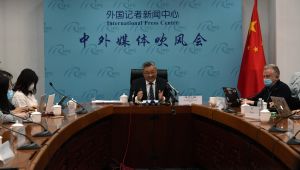Any presidential election is in part a referendum on the 3 a.m. question: Whom do you trust to answer and make a wise decision if the red phone rings in the middle of the night with a nuclear crisis?
The remaining weeks of this presidential campaign will focus more on the foreign policy issues that will help Americans make this decision. And it should help concentrate our minds that this month marks the 50th anniversary of the most dangerous moment in modern American history, the Cuban missile crisis.
The surprising fact is that 50 years later, so many of the key questions about the crisis remain unanswered — and perhaps, unanswerable: Why did Soviet Premier Nikita Khrushchev secretly install nuclear missiles in Cuba? Why did President John F. Kennedy and his brother Bobby resist the nearly universal advice of hawkish advisers to strike Cuba, despite their own decades of militant anti-Soviet rhetoric? What would have happened if detailed news of the crisis had leaked, or if the Soviets had publicized JFK’s secret pledge to remove missiles from Turkey in exchange for Khrushchev’s public climb-down?
You’d think we would have answers for these riddles, given that the Cuban missile crisis is the best-studied national security emergency in history. We have taped deliberations of JFK’s famous “ExComm,” his inner circle of advisers; and we have documents from Soviet and Cuban archives, as well as interviews with participants on all sides. Yet the mysteries persist.
To prepare for this 50th anniversary, Graham Allison, whose book “Essence of Decision” makes him the dean of scholars of the crisis, recently hosted a conference of experts at the Harvard Kennedy School’s Belfer Center. These specialists continue to unearth new nuggets of information: Some Soviet ships may have turned around two days earlier than U.S. intelligence realized; as ExComm planned an invasion of Cuba, the United States didn’t realize the Soviets had tactical nuclear weapons there. It’s truly frightening how much wasn’t understood at the time.
As part of its 50th anniversary work, the Belfer Center is sponsoring a contest for students to come up with their own lessons for the crisis. (Go to cubanmissilecrisis.org for details.) But even in the lessons-learned category, where you’d think there would be clarity, the views are sharply divergent.
Harvard researchers have catalogued lessons learned by different U.S. presidents from the 1962 confrontation. The presidents tend to see the lessons in their own image, reinforcing their own policy preferences: JFK saw the benefits of secret diplomacy and the futility of nuclear war, but his successor, Lyndon Johnson (who had clamored for military action), saw the lesson as American firmness and believed Vietnam posed the same challenge as Cuba. Richard Nixon thought the key was nimble presidential leadership; Jimmy Carter saw the need to engage adversaries. George W. Bush oddly cited Kennedy’s cautious decisions as a rationale for preemptive military attack.
The advisers of 1962 brooded over the meaning of the missile crisis for the rest of their lives. Soviet Ambassador to Washington Anatoly Dobrynin thought Khrushchev’s fatal mistake was that he failed to publicize the secret Cuba-Turkey missile swap he had helped negotiate. Attorney General Robert F. Kennedy, the once inflexible Red-baiter who helped his brother find an escape route from confrontation, realized that one must never humiliate an adversary. Robert S. McNamara, the defense secretary, would conclude, “At the end, we lucked out.”
Which brings us back to the candidates of today. How would they handle a crisis of this gravity and unpredictability? Barack Obama has stressed the importance of Kennedy’s “calm, rational judgment” and his “courage . . . to talk to our enemies.” I haven’t found direct comments from Mitt Romney, but we can infer from other policy statements that he would probably agree with his friend Israeli Prime Minister Benjamin Netanyahu that the crisis showed the importance of setting “red lines” and backing them with force.
In thinking about these two candidates, we need to imagine them in the cauldron of October 1962. Do they have the resolution to take the nation to the brink of war to deter an adversary? Do they have the creativity and humility to see events through their adversaries’ eyes, and find a path to peace? Which one would you trust at 3 a.m.?
Ignatius, David. “Whom Would You Call?.” The Washington Post, October 11, 2012



